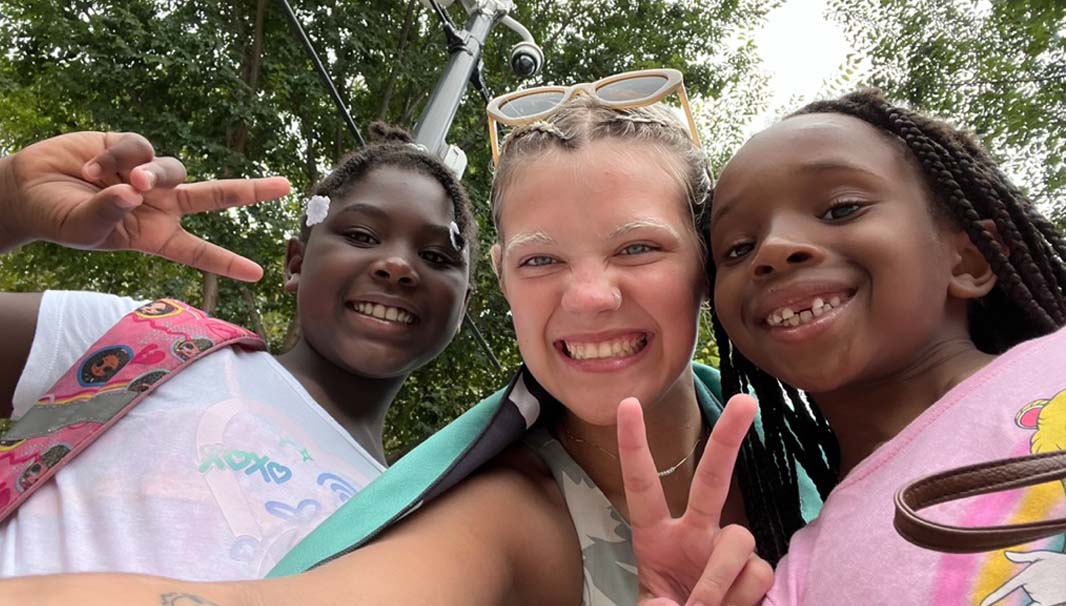Urban Cohort students find a passion for community through summer camp internships
Developing a sense of purpose and place helps students make deeper connections to academic interests

Urban Cohort students find a passion for community through summer camp internships
Seeing how joy can exist alongside struggle and suffering. Noticing yourself starting to notice the little things in life. And understanding what it means to be truly aware and present, with purpose, and in a particular place while striving for social change.
These are not the typical reflections often found at summer camp. But they are exactly what Miami University Urban Cohort students gained from their recent experiences with the Peaslee Neighborhood Center near downtown Cincinnati.
This summer, four Miami students from an array of majors including Social Work, Neuroscience, Biology, Criminal Justice, Sustainable Development, Political Science, and Geography worked with local children through an internship funded by a PNC Trust grant.
While living and working alongside members of marginalized communities and low-income families, they chaperoned field trips, hosted swimming sessions, led literacy activities, and helped to create community among, and enrich creativity of kids between six and 15 years old.
For Clara Conover, a Geography and Sustainable Development and Political Science major, it also provided a profound and eye-opening look into how this kind of place-based learning could connect her academic work to her interests in activism and civic engagement.
“A lot of what I've received from my political science program has been focused on electoral politics, and working within the system to create change in ways that aren’t always realistic. Because politics are largely controlled by specific groups that don't speak for everyone,” Conover said. “So this has allowed me to channel my passion for social change.”
Neuroscience major Tyler Williams worked with high school students through Peaslee’s Agents of Change portion of the camp, and his reflections focused on what it meant to become aware and conscious of the realities of life in an inner city neighborhood.
Throughout the summer, the Miami interns also helped Peaslee create an evaluation system to track the camp’s progress, while also increasing the center’s capacity to expand and deepen the summer program for the local kids.
“We invest in the positive development of our kids, acknowledging and strengthening their ability to positively impact the world around them,” said Jennifer Arens, Peaslee community education coordinator. “It is powerful to watch the Miami interns both lead and accompany our kids through this journey. It takes constant creativity and vitality to keep kids having fun, and connecting with each other, and learning about things that matter in the world.”
This is also the kind of learning that is a vital, yet often overlooked part of what students can also learn in college, says Tammy Schwartz, Urban Cohort director.
She sees both Urban Cohort and these summer camp internships as a way to help college students engage in community-based learning, to critically analyze power systems in society, and to wrestle with what it means to strive for a socially just world.
“College is really good about preparing students for theory and practice, but it’s not always about this interior life of the student,” Schwartz said. “And I notice our students are craving that because it grounds them in a purpose and helps them become deeply connected to others. And so during this camp, they provided services and had a huge impact on the kids, but watching what happened to them inwardly, as they too moved through this process, was also really amazing.”
“Through this internship and the Urban Cohort, I found a passion for community work that I wouldn't have found otherwise,” Conover said.